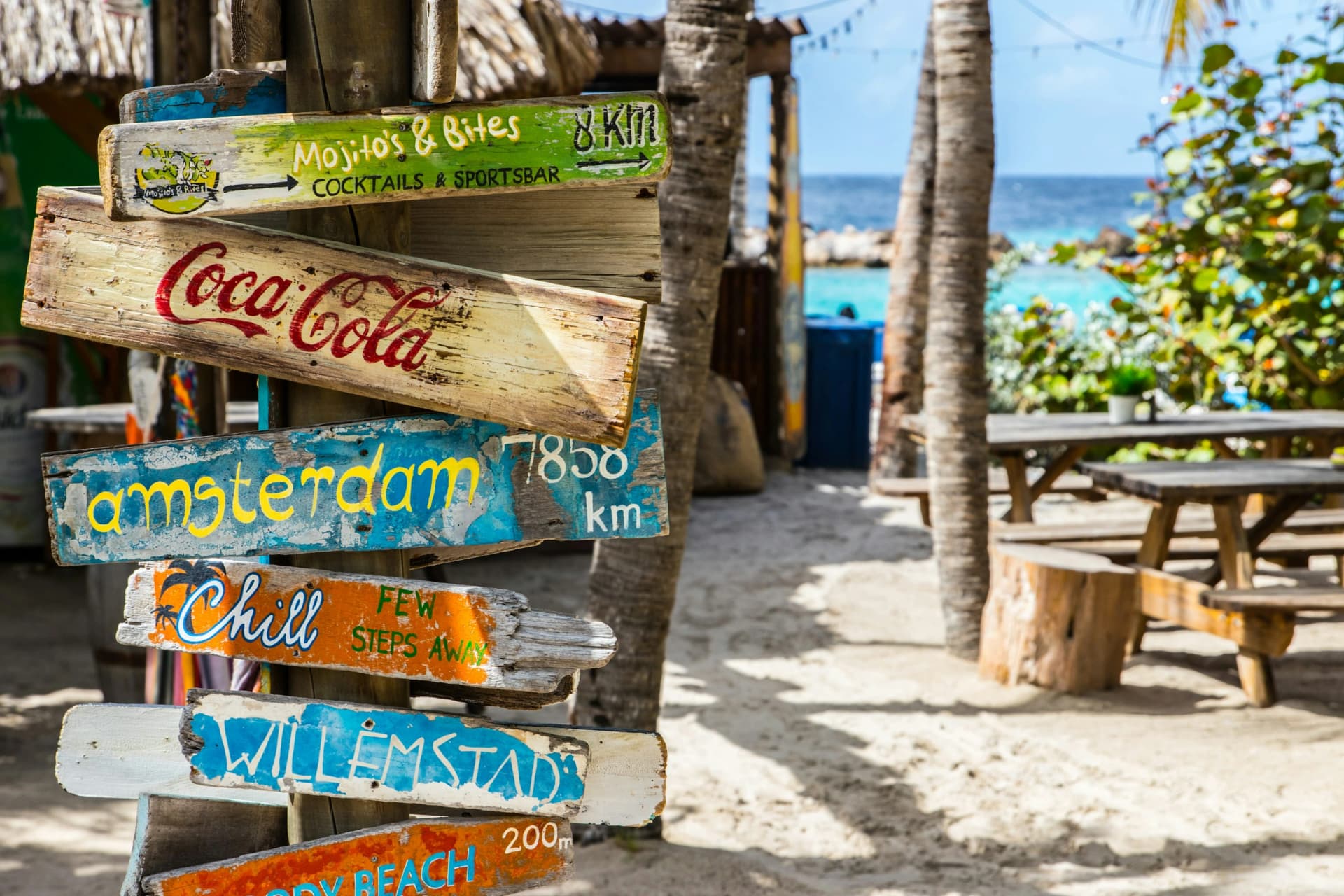
Preserving Paradise for Future Generations
Klein Curaçao's pristine beauty depends on responsible tourism practices. This uninhabited island paradise faces increasing pressure from tourism, making sustainable travel choices more crucial than ever. By following Leave No Trace principles and eco-friendly practices, visitors can help preserve Klein Curaçao's coral reefs, sea turtle nesting sites, and fragile ecosystem for future generations.
Understanding Klein Curaçao's Ecosystem
Protected Species and Habitats
Klein Curaçao serves as a critical nesting site for sea turtles and supports diverse marine life. The island's coral reefs, seagrass beds, and pristine beaches form an interconnected ecosystem that requires careful protection from human impact.
Environmental Challenges
- Coral bleaching from climate change and pollution
- Sea turtle nesting habitat disruption
- Marine debris and plastic pollution
- Trampling damage to vegetation and coral
- Chemical pollution from sunscreens and personal care products
Reef-Safe Sunscreen: Your First Line of Defense
Why Reef-Safe Sunscreen Matters
Traditional sunscreens contain chemicals like oxybenzone and octinoxate that contribute to coral bleaching and marine ecosystem damage. Klein Curaçao's pristine reefs require protection from these harmful substances.
Reef-Safe Sunscreen Guidelines
- Choose mineral sunscreens with zinc oxide or titanium dioxide
- Avoid oxybenzone, octinoxate, and other reef-toxic chemicals
- Apply 30 minutes before water activities
- Reapply every 2 hours and after swimming
- Use SPF 30+ for adequate protection
Additional Sun Protection
- Wear UV-protective clothing and hats
- Seek shade during peak sun hours (10 AM - 4 PM)
- Use umbrellas and pop-up shelters
- Consider long-sleeve rashguards for water activities
Protecting Sea Turtle Nesting Sites
Sea Turtle Nesting Season
Klein Curaçao hosts nesting loggerhead, green, and hawksbill sea turtles from May through October. During this critical period, human activity can significantly impact nesting success and hatchling survival.
Responsible Behavior Around Nesting Sites
- Maintain 50-meter distance from nesting turtles
- Never use flash photography or bright lights
- Avoid walking on marked nesting beaches at night
- Never touch or disturb nesting turtles or eggs
- Fill in holes dug in sand that could trap hatchlings
Nest Identification and Protection
- Learn to identify turtle tracks and nest sites
- Report nest sightings to tour operators
- Never remove eggs or disturb nest sites
- Keep beach areas clean of debris
Sustainable Snorkeling and Swimming
Coral Reef Protection
- Never touch, stand on, or collect coral
- Maintain neutral buoyancy to avoid accidental contact
- Use reef-safe sunscreen and personal care products
- Avoid kicking up sediment with fins
- Don't chase or harass marine life
Responsible Wildlife Viewing
- Observe marine life from a respectful distance
- Never feed fish or other marine animals
- Avoid using flash photography underwater
- Don't collect shells, coral, or other marine souvenirs
Waste Reduction and Management
Pack It In, Pack It Out
Klein Curaçao has no waste management infrastructure, making the "Leave No Trace" principle absolutely essential. Every item brought to the island must be removed.
Sustainable Packing Tips
- Use reusable water bottles and containers
- Avoid single-use plastics and disposable items
- Bring biodegradable soap and shampoo
- Pack snacks in reusable containers
- Use natural fiber clothing and gear when possible
Beach Clean-Up Participation
- Participate in organized beach clean-up activities
- Pick up trash you encounter, even if it's not yours
- Report large debris or hazardous waste
- Educate others about waste reduction
Choosing Eco-Friendly Tour Operators
Sustainable Tourism Practices
- Look for operators with environmental certifications
- Choose companies that limit group sizes
- Support operators who educate about conservation
- Select tours that contribute to local conservation efforts
Questions to Ask Tour Operators
- What steps do you take to minimize environmental impact?
- Do you provide reef-safe sunscreen and eco-friendly products?
- How do you educate guests about conservation?
- What waste management practices do you follow?
Conservation Education and Awareness
Understanding Your Impact
Every visitor to Klein Curaçao has an impact on the environment. By understanding these impacts and taking proactive steps to minimize them, tourists can become partners in conservation rather than contributors to environmental degradation.
Sharing Conservation Knowledge
- Share eco-friendly practices with fellow travelers
- Document and share conservation successes
- Support local conservation organizations
- Advocate for sustainable tourism policies
Supporting Sustainable Tourism
Your choices as a tourist directly impact Klein Curaçao's future. Choose eco-conscious tour operators on DushiGo who prioritize environmental protection and sustainable practices, ensuring this pristine paradise remains unspoiled for future generations.
Ready to Book Your Curaçao Services?
From snorkeling tours & adventures to snorkeling adventures, DushiGo connects you with trusted local marine service providers in Curaçao.